Reviews
Robert Gordon
USA, 1955
Credits
Review by Thomas Scalzo
Posted on 28 October 2013
Source Columbia Pictures DVD
Categories 31 Days of Horror X
Since the dawn of history, humans have been fascinated, and terrified, by the oceans. Early cartographers, fueled by tall tales, and a paucity of facts, populated many of the blank spaces on their maps with humongous and hideous sea creatures. For centuries, such seemingly benign decorations proved exceedingly powerful on our collective imagination, engendering a persistent belief that something horrible lay in wait in the bottomless depths. Even today, despite extraordinary advances in mapping and exploring the ocean floor, we still cannot claim to have uncovered all of the oceans secrets, or experienced all its horrific possibilities. Each Monday this month, we’ll dive into a tale of terror that plunges us far below the horrors of the surface world into the unfathomable fears of the deep.
After his atom-powered submarine is nearly destroyed by an unknown aquatic menace, Captain Pete Mathews demands an explanation. Though the Navy is flummoxed, they have the good sense to bring in two of the top scientists in the nation, John Carter and Lesley Joyce, to figure out just what when on out there in the Pacific. After several days of diligent lab work, Carter and Joyce postulate a hypothesis: Captain Mathew’s sub was attacked by an octopus—a gigantic, radioactive, and carnivorous octopus. Not unexpectedly, the brass doesn’t buy it, arguing that in all the years of Pacific Naval activity, nothing like a giant octopus had ever been spotted. But when the attacks continue, and occur closer and closer to shore, even the non-believers agree that something must be done.
At first glance, what we have here is a classic example of the tried and true 1950s monster movie formula: an oversized creature, enraged by radioactivity, going on a rampage; a sober team of scientists and military men doing everything in their collective power to destroy it; and a hapless populace serving as fodder for the beast’s wrath. We have the requisite explanation that humanity’s fiddling with atomic weaponry is at the heart of the problem, and the expected fiery climax, replete with screaming crowds, massive explosions, and widespread destruction. What sets this film apart, though, is the magnificently realized octopus monster, brought to life by the wizard of stop-motion animation, the incomparable Ray Harryhausen. That and one of the most bizarre love triangles I’ve ever seen.
When first we meet doctors Carter and Joyce, they appear to have a purely professional association. When Captain Mathews makes a move on Lesley, then, we assume we’re simply witnessing the beginning of a time-filling romantic subplot. As things develop, though, we learn that Lesley and John do have a relationship, one based on mutual admiration, respect, and love. In particular, John values Lesley’s intelligence, confidence, and independence, and wouldn’t dare to control any aspect of her life. In film’s centerpiece of narrative inanity, he explains to Pete that Lesley is part of a “whole new breed” of women who “feel they’re just as smart and just as courageous as men.” He goes on to advise Pete that women like Lesley “don’t like to be overprotected,” and “they don’t like to have their initiative taken away from them.”
Despite John’s championing of this “new breed” of woman, though, Lesley appears to be much more attracted to Pete, the old-fashioned, take-charge, keep women out of harm’s way kind of guy. Thus, when Pete makes a move, Lesley doesn’t resist, or make the least indication that she feels guilty about stepping out on John. In fact, she comes out and tells John that Pete kissed her, and asks him what he thinks she should do about it. Incredibly, John doesn’t get mad at all. Instead, he answers scientifically, advising Lesley to examine how she feels about Pete, and to explore the implications of the kiss. Just as things seem to be going Pete’s way, Lesley changes her mind again, declaring that once all this octopus nonsense is cleared up, she’ll be embarking on a lengthy tour of Egypt with John. Why the filmmakers felt it necessary to inject such a ludicrous subplot into a film about a killer octopus is beyond my comprehension. Regardless, the saga of Lesley, John, and Pete is hilarious, as memorable as it is unexpected.
Preposterous human sideshow aside, the real star here is Ray Harryhausen’s magnificent giant octopus. Whether dragging fishing vessels to their doom, swatting helicopters out of the sky, or tearing down the Golden Gate Bridge, this enraged cephalopod is an impressive feat of stop-motion animation. In fact, Harryhausen’s creation is so wonderfully realized that it quickly establishes a personality, and by the time the carnage-filled climax rolls around, we can’t help but feel pity for the beast. Though the elaborate military response and need to protect the citizenry is understandable, the fact is that the octopus’ anger, and the reason it has come ashore in the first place, is a direct result of humanity meddling with its habitat. From everything Joyce and Carter reveal, were it not for its maddening hunger, the great beast would have happily remained in the deepest depths of the ocean. It’s food supply decimated, however, it had little choice but to surface, and scour the seas for sustenance.
Surprisingly, not even the scientists seemed moved by these facts. At no time does anyone even posit the idea that trapping and studying the beast might be better than destroying it. On the contrary, once the beast is sighted, it’s all out war. “We have good reason to believe that its destruction must be complete and instantaneous,” says Carter. And everyone agrees. Even when the foe has been extinguished, and the danger has passed, no one expresses the least sense of guilt, or admits that all of this could have been avoided had humankind not meddled where it should not have. Thus, instead of a sobering reminder that with tremendous advances in science and technology come potentially horrible consequences, the message here is that American firepower can destroy anything. It is a subtle theme, easily overlooked amidst all the glorious octopus action, but it does inject this otherwise lighthearted monster movie with disquieting cold war propaganda. When considered alongside our main players’ collective preoccupation with romance, such shortsighted human motivations and callous indifference to the natural world make us side with Harryhausen’s monster even more.
More 31 Days of Horror X
-

Safe
1995 -

Viy
1967 -

Black Narcissus
1947 -

Possession
1981 -

Carrie
1976 -

The Devils
1971 -
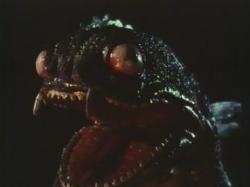
The Sea Serpent
1984 -

The Dark Half
1993 -

The Baby
1972 -
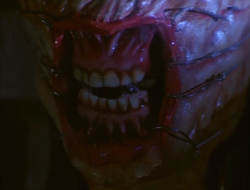
Hellraiser
1987 -

The White Reindeer
1952 -

The Serpent and the Rainbow
1988 -
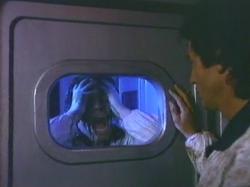
Endless Descent
1989 -

Prom Night
1980 -

Night Train Murders
1975 -
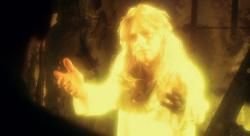
God Told Me To
1976 -

In a Child’s Name
1991 -

Beasts
1976 -

Prom Night II
1987 -

Men Behind the Sun
1986 -
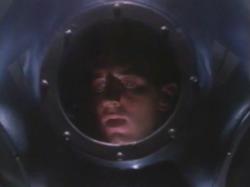
DeepStar Six
1989 -

At Midnight I’ll Take Your Soul
1964 -

They Came Back
2004 -
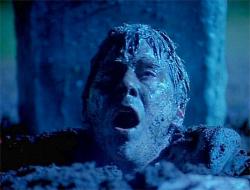
Buried Alive
1990 -
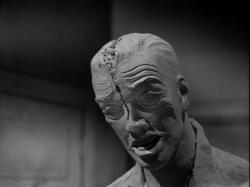
A Bucket of Blood
1959 -
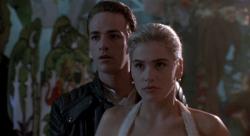
Buffy the Vampire Slayer
1992 -

Night and Fog
1956 -

It Came From Beneath the Sea
1955 -
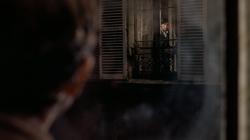
The Tenant
1976 -

Tokyo Gore Police
2008 -

The Rocky Horror Picture Show
1975
We don’t do comments anymore, but you may contact us here or find us on Twitter or Facebook.



